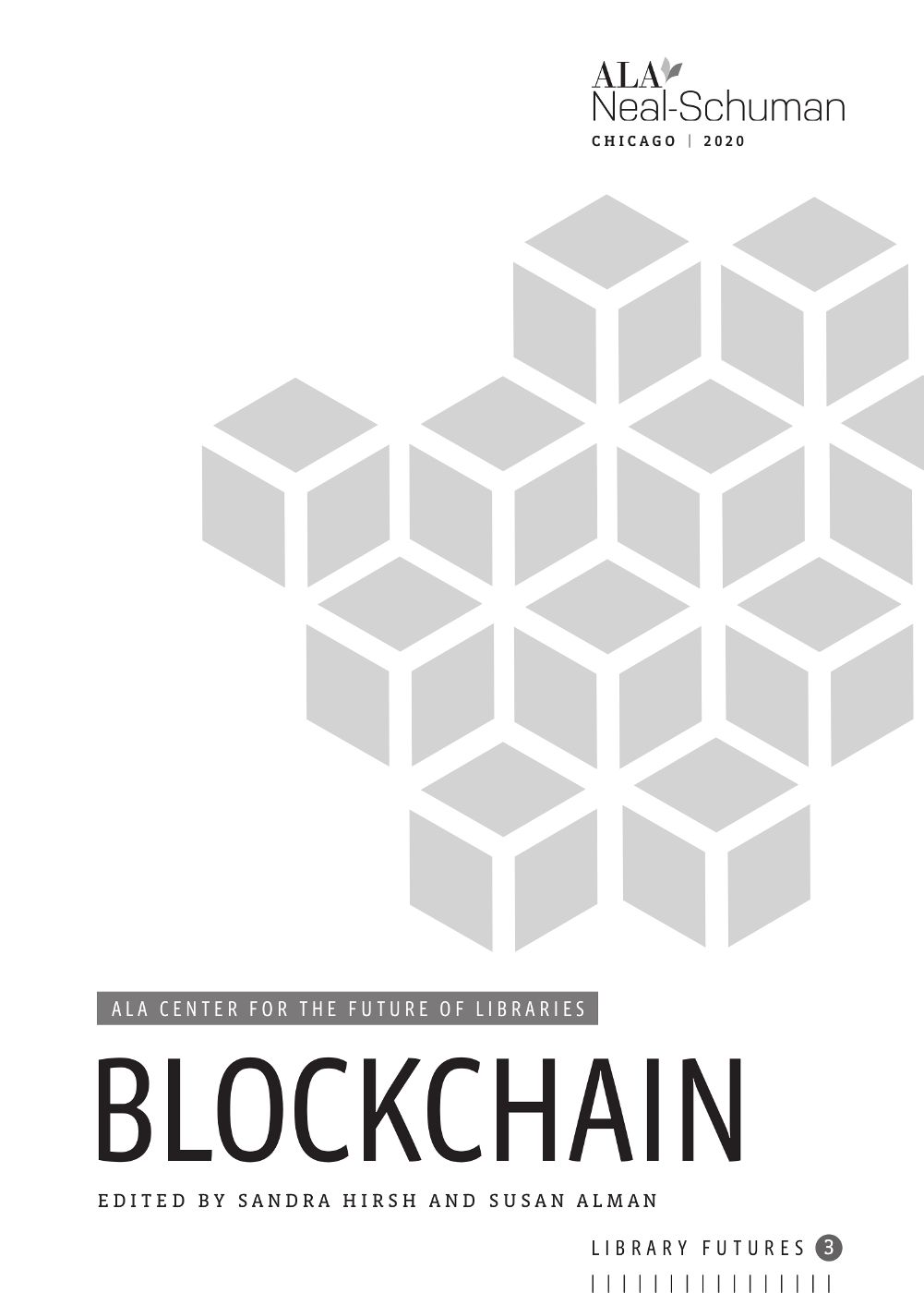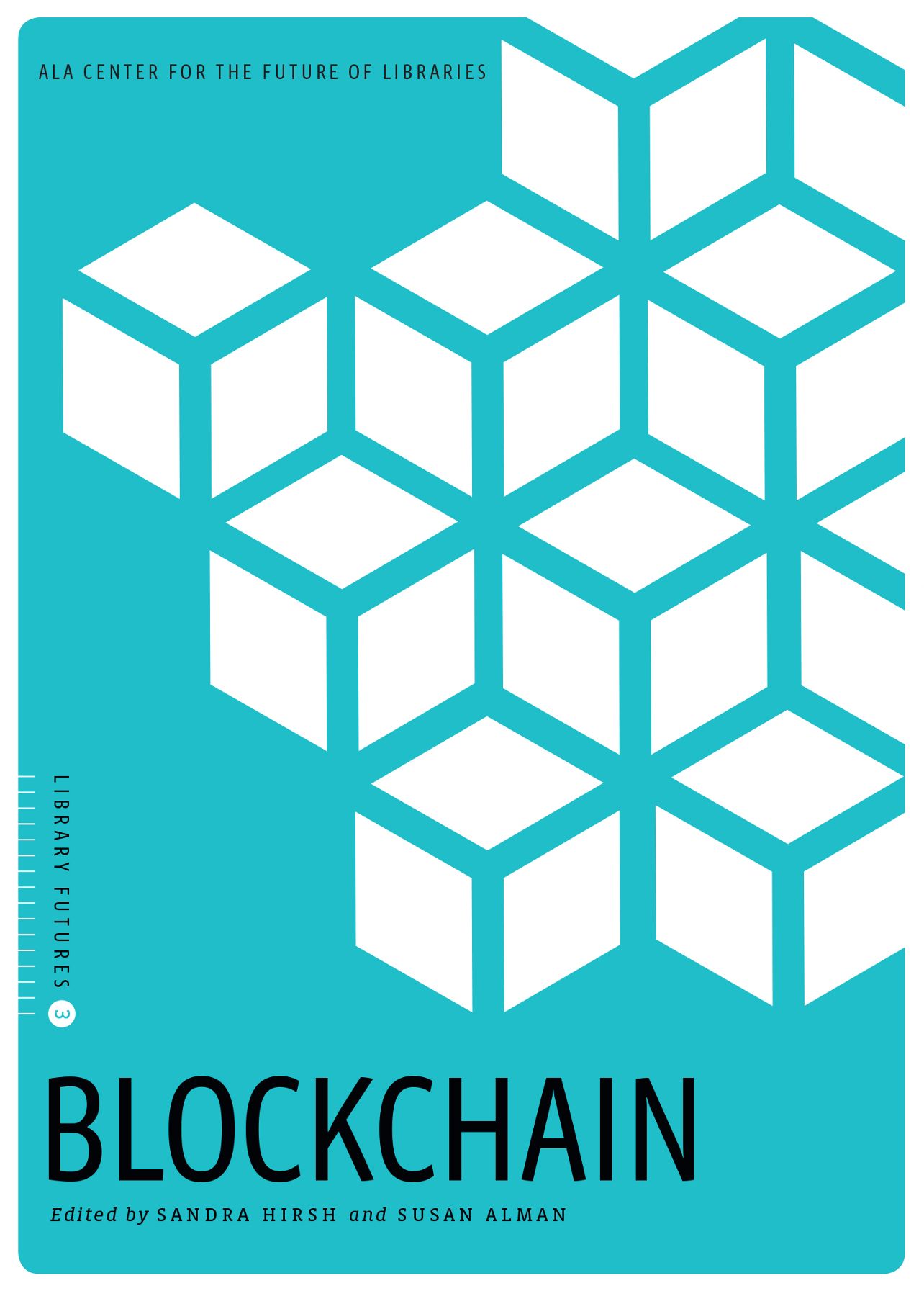
BOOKS IN THE LIBRARY FUTURES SERIES
Resilience by Rebekkah Smith Aldrich
Anonymity by Alison Macrina and Talya Cooper
Blockchain edited by Sandra Hirsh and Susan Alman
Design Thinking (forthcoming) by Rachel Ivy Clarke
2020 by the American Library Association
Extensive effort has gone into ensuring the reliability of the information in this book; however, the publisher makes no warranty, express or implied, with respect to the material contained herein.
ISBNs
978-0-8389-1743-5 (paper)
978-0-8389-4682-4 (PDF)
978-0-8389-4681-7 (ePub)
978-0-8389-4683-1 (Kindle)
Library of Congress Control Number: 2019040312
Cover design by Kimberly Thornton. Image lunar_cat/Adobe Stock.
ALA Neal-Schuman purchases fund advocacy, awareness, and accreditation programs for library professionals worldwide.
Contents
CHRISTINA CORNEJO and STACEY JOHNSON
JASON GRIFFEY
BOHYUN KIM
TODD A. CARPENTER
DAN BLACKABY
TONIA SAN NICOLAS-ROCCA
TOBY GREENWALT
M ac KENZIE SMITH
HEATHER M c MORROW and AMY JIANG
TIMOTHY A. THOMPSON
ANNIE NORMAN
VICTORIA LEMIEUX
FRANK CERVONE
JOHN BRACKEN and MICHAEL DELLA BITTA
M. RYAN HESS
LINK SWANSON
We want to thank the contributors to this publication for their pioneering spirit, and for engaging in a national dialogue focused on the possibilities that blockchain technology can bring to the information professions. Collectively, these contributors have identified key issues and use cases that need further investigation, and their work has made our crystal ball a little clearer as we gaze into the emerging future.
BY MIGUEL A. FIGUEROA
Center for the Future of Libraries
American Library Association
For its 2019 Global Blockchain Report, Deloitte surveyed 1,386 senior executives in a dozen countries, finding that 53 percent of respondents view blockchain as a critical priority for their organizations and 83 percent see compelling use cases for blockchain in their sectors. Across news articles and reports, 2019 appears to have been the year when blockchain shifted from novel technology to something more viable that could provide solutions to problems across industries. And while this enthusiasm could be dismissed as part of a normal competitive business enthusiasm (the executives surveyed for Deloittes report represented US companies with US$500 million in revenue or more and international companies with US$100 million or more), there is growing curiosity and interest in blockchain across healthcare, government, the art world, and telecommunications.
Blockchain grows out of Drs. Sandra Hirshs and Susan Almans experience with a project funded by the Institute of Museum and Library Services to investigate the possible uses of blockchain technology in libraries. What I appreciate about that projects process and eventual National Forumand what I appreciate about this volumeis the mix of perspectives, enthusiasm, and skepticism that have been brought to this discussion. In so many ways, it represents a spirit of librarianship that recognizes the emergence of a new need or interest within the community and brings to bear a process of inquiry, reflection, and discernment to help understand libraries roles in relation to that need. For those readers who bring an enthusiasm for technology generally or blockchain specifically, there will be much to find in this collection. For those who bring a healthy skepticism, so too, will there be contributions that reinforce and some that challenge our assumptions. And for those who hold an enthusiasm for libraries ongoing development and adaptation, this collection provides an accessible introduction to a topic that many people are discussing and that we would all do well to be more informed about.
In line with the previous volumes in this series, editors and contributors have done important work to not only frame the emerging trend and issue, but to also root their discussion in fundamental and timeless library roles, purposes, and values.
Understanding Blockchain helps readers establish the fundamentals of blockchain technology, the risks and opportunities, and how it fits into broader movements in technology. Jason Griffey contextualizes the innovative importance of blockchain, focusing on the potential user-facing services and systems that this decentralized technology might provide. Bohyun Kim promotes the positive potential for the technology while also tempering enthusiasm with considerations for interoperability, scalability, security, energy consumption, and the very basic concern that libraries may not yet have compelling use cases to justify investments of time and money.
Before the Hype presses pause on ambitions to consider some of the issues still being sorted out for the technology. In addition to Todd Carpenters consideration of standards, Dan Blackabys legal considerations, and Tonia San Nicolas-Roccas security concerns, Toby Greenwalt provides a very practical perspective on the value trade-off in time, training, and infrastructure for operations that may improve existing library services and practices or challenge issues of trust, storage, bandwidth, and cost.
For the Future brings together eight speculative use cases that might improve operations and experiences in libraries. The range of uses spans academic libraries, instruction, and programming (MacKenzie Smith on scholarly communication; Heather McMorrow and Amy Jiang on credentialing); content, collections, and the organization of information (Timothy A. Thompson on metadata; John Bracken and Michael Della Bitta on born-digital content); administration and promotion of libraries (Annie Norman on assessment; M. Ryan Hess on community-based collections); and medical libraries and health information (Victoria Lemieux, health information; Frank Cervone on health records). While these contributions outline very specific use cases, they also help prepare a framework for thinking more broadly about how blockchain could change operations and practices in libraries and in the sectors around us.
Finally, a brief For the Present offers Link Swansons thoughts for libraries roles in educating communities about blockchains possibilities.
Is a path forward with blockchain assured? Absolutely not. The conversation is still very much a debate. With this in mind, Blockchain is not meant to be a guide or manual, but a conversation starter. These contributions from experts and innovative thinkers will help strengthen our discussion and refine our prioritization for this technology.
.
An Investigation of Blockchain Applications: Beginnings and Implications
BY SANDRA HIRSH AND SUSAN ALMAN
Blockchain has generated a lot of buzz due to the potentially disruptive and transformative possibilities it offers. It is clear from the expanding literature that blockchain technology is on the brink of revolutionizing the public and private sectors. Conferences, books, white papers, start-ups, and numerous back-channel discussions have explored the ways blockchain technology can address seemingly endless processes. The extensive media coverage of the growing popularity of blockchain technology, and their predictions of its being a game changer, caught our attention, and we began to think of possible blockchain use for library applications and how this could be investigated. As we looked into it more, we discovered that blockchain technology was being discussed widely, but without clear directions for library applications.
Next page
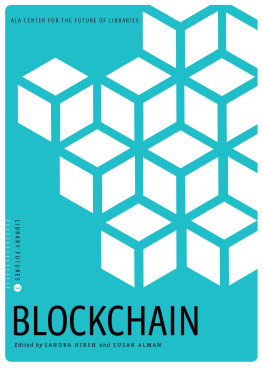
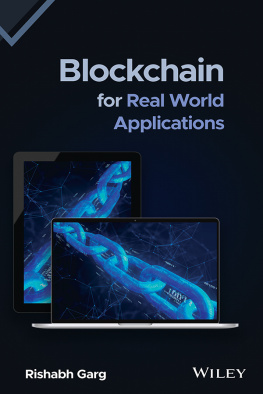
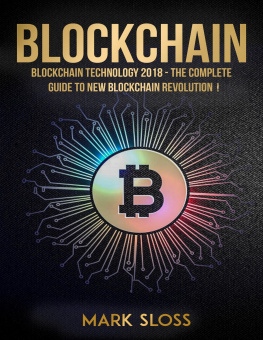
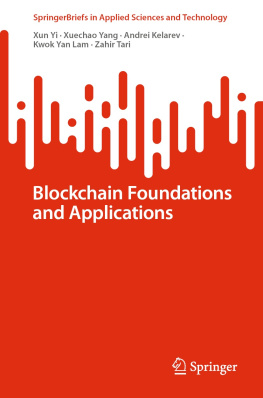

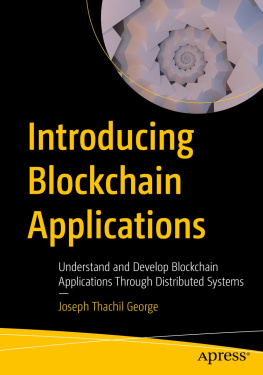
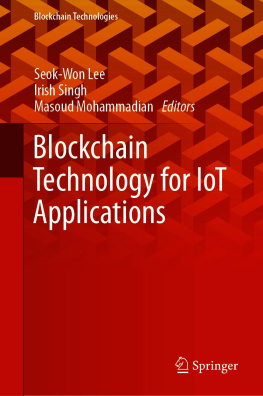
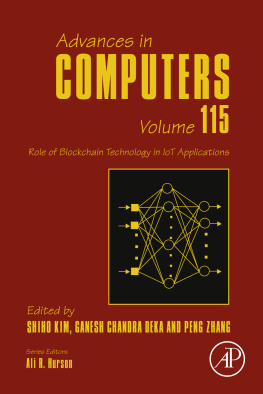
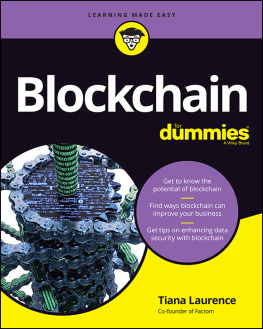

![Tiana Laurence [Tiana Laurence] - Blockchain For Dummies](/uploads/posts/book/119706/thumbs/tiana-laurence-tiana-laurence-blockchain-for.jpg)
![Kirankalyan Kulkarni [Kirankalyan Kulkarni] - Learn Bitcoin and Blockchain](/uploads/posts/book/119684/thumbs/kirankalyan-kulkarni-kirankalyan-kulkarni-learn.jpg)

